第61章 CHAPTER III PROVIDENCE VON ROSEN: ACT THE LAST IN
The Countess had a most enjoyable sham siege, and then relented. She sprang to her feet, she tore her dress open, and, all warm from her bosom, threw the order on the floor.
`There!' she cried. `I forced it from her. Use it, and I am ruined!'
And she turned away as if to veil the force of her emotions.
Otto sprang upon the paper, read it, and cried out aloud. `O, God bless her!' he said, `God bless her.' And he kissed the writing.
Von Rosen was a singularly good-natured woman, but her part was now beyond her. `Ingrate!' she cried; `I wrung it from her, I betrayed my trust to get it, and `tis she you thank!'
`Can you blame me?' said the Prince. `I love her.'
`I see that,' she said. `And I?'
`You, Madame von Rosen? You are my dearest, my kindest, and most generous of friends,' he said, approaching her. `You would be a perfect friend, if you were not so lovely. You have a great sense of humour, you cannot be unconscious of your charm, and you amuse yourself at times by playing on my weakness; and at times I can take pleasure in the comedy.
But not to-day: to-day you will be the true, the serious, the manly friend, and you will suffer me to forget that you are lovely and that I am weak.
Come, dear Countess, let me to-day repose in you entirely.'
He held out his hand, smiling, and she took it frankly. `I vow you have bewitched me,' she said; and then with a laugh, `I break my staff!' she added; `and I must pay you my best compliment. You made a difficult speech. You are as adroit, dear Prince, as I am -- charming.' And as she said the word with a great curtsey, she justified it.
`You hardly keep the bargain, madam, when you make yourself so beautiful,' said the Prince, bowing.
`It was my last arrow,' she returned. `I am disarmed. Blank cartridge, O mon Prince ! And now I tell you, if you choose to leave this prison, you can, and I am ruined. Choose!'
`Madame von Rosen,' replied Otto, `I choose, and I will go. My duty points me, duty still neglected by this Featherhead. But do not fear to be a loser. I propose instead that you should take me with you, a bear in chains, to Baron Gondremark. I am become perfectly unscrupulous: to save my wife I will do all, all he can ask or fancy. He shall be filled; were he huge as leviathan and greedy as the grave, I will content him.
And you, the fairy of our pantomime, shall have the credit.'
`Done!' she cried. `Admirable! Prince Charming no longer -- Prince Sorcerer, Prince Solon! Let us go this moment. Stay,' she cried, pausing.
`I beg dear Prince, to give you back these deeds. `Twas you who liked the farm -- I have not seen it; and it was you who wished to benefit the peasants.
And, besides,' she added, with a comical change of tone, `I should prefer the ready money.'
Both laughed. `Here I am, once more a farmer,' said Otto, accepting the papers, `but overwhelmed in debt.'
The Countess touched a bell, and the Governor appeared.
`Governor,' she said, `I am going to elope with his Highness.
The result of our talk has been a thorough understanding, and the coup d'état is over. Here is the order.'
Colonel Gordon adjusted silver spectacles upon his nose. `Yes,' he said, `the Princess: very right. But the warrant, madam, was countersigned.'
`By Heinrich!' said von Rosen. `Well, and here am I to represent him.'
`Well, your Highness,' resumed the soldier of fortune, `I must congratulate you upon my loss. You have been cut out by beauty, and I am left lamenting. The Doctor still remains to me: probus, doctus, lepidus, jucundus : a man of books.'
`Ay, there is nothing about poor Gotthold,' said the Prince.
`The Governor's consolation? Would you leave him bare?' asked von Rosen.
`And, your Highness,' resumed Gordon, `may I trust that in the course of this temporary obscuration, you have found me discharge my part with suitable respect and, I may add, tact? I adopted purposely a cheerfulness of manner; mirth, it appeared to me, and a good glass of wine, were the fit alleviations.'
`Colonel,' said Otto, holding out his hand, `your society was of itself enough. I do not merely thank you for your pleasant spirits;
I have to thank you, besides, for some philosophy, of which I stood in need. I trust I do not see you for the last time; and in the meanwhile, as a memento of our strange acquaintance, let me offer you these verses on which I was but now engaged. I am so little of a poet, and was so ill inspired by prison bars, that they have some claim to be at least a curiosity.'